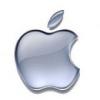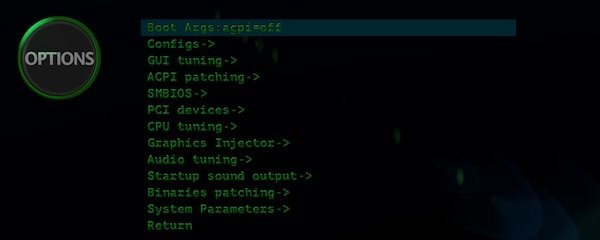-
Posts
10069 -
Joined
-
Last visited
-
Days Won
569
Content Type
Profiles
Articles, News and Tips
Forums
Everything posted by Hervé
-
Check your BIOS settings against the posted recommended ones and adjust as/if necessary.
-
Up until this time last year, I had a Latitude E6440, a Haswell laptop fitted with HD4600 iGPU and AMD dGPU. The AMD dGPU was not supported and therefore disabled via DSDT/SSDT patching. There never was anything to be done on the iGPU front regarding performance per sé. Booting off the mSATA SSD was just about the same as with any other of my Hacks: ~20s from start to finish. I'm a little surprised to read that, on your Haswell desktop, enabling the HD4600 iGPU increases your boot time by almost 20s. I can't say ever heard of such an impact before. Did you try and analyse what happens at boot time through verbose mode when iGPU is on? Other than my Sandy Bridge Latitude E6220 and it's crappy HD3000, I find no particular performance issue on my other laptops running iGPU: whether it'd be my Ivy Bridge Latitude E6230 and its HD4000 iGPU or my Kaby Lake R Latitude 7490 and its UHD620 iGPU. Same applied to the Broadwell Latitude E7250 + HD5500 iGPU I had for a brief spell.
-
Hi @arsradu, yes we're aware of this recent issue and we're trying to solve this.
- 1 reply
-
- 1
-

-
Please consult the FAQ section. I'm sure you can do it without assistance.
-
We have a dedicated thread on the matter in our FAQ section.
-
Tested with r5118 and confirmed.
-
I see: no display detected on 1st output port. I would suggest 2 x things: try MBP11,3 SMBIOS inject boolean property @0,AAPL,boot-display (set to 1) to 1st output port
-
You could possibly try and inject properties for the 1st output port NVDA,Display-1@0 in an attempt to redefine its properties; can't say if it'd work but nothing to lose really. Also, in order to avoid all confusion on the matter, I'd rename GFX0 (@00020000) to iGPU, then PEGP (@00010000) to GFX0. Try and post a zipped copy of your IOReg if you can.
-
eDP models were out of luck as far as built-in LCD is concerned (see @nsmartin last post in M4800 thread I linked above). I've not seen anything that changed this in the last 4 years. @Xeon3D quite clearly confirms this too... This being said, I remember the days when Precision M4600 with nVidia graphics would too end up in a black screen when using MBP8,x Sandy Bridge SMBIOS. See here (Chameleon/Enoch) and here (Clover) for instance. People obtained a black screen unless they using a specifically tuned MBP6,x SMBIOS where the board-id was replaced by that of nVidia GPU-based MBP10,1 (Credits to @DuongTH from memory). MBP8,x models were either HD3000 (MBP8,1) or dual HD3000 + AMD Radeon HD 6xxx graphics (MBP8,2/MBP8,3). So, given that: MBP6,x were Arrandale platforms running with dual 1st gen Intel HD + nVidia GeForce GT 330M (Tesla 2.0 GT216) graphics MBP10,1 was Ivy Bridge platform running with dual Intel HD4000 + nVidia GeForce GT 650M (Kepler GK107) graphics MBP11,1 was Haswell platform running with Intel Iris 5100 graphics only MBP11,3 was Haswell platform running with dual Intel Iris Pro 5200 + nVidia GeForce GT 750M (Kepler GK107) graphics MBP11,5 was Haswell platform running with dual Intel Iris Pro 5200 + AMD Radeon R9 M370X (Tropo GCN1.0) graphics and that: Precision M4800: nVidia Quadro K1100M is Kepler GK107 nVidia Quadro K2100M is Kepler GK106 AMD FirePro M5100 is Venus GCN1.0 Precision M6800: nVidia Quadro K3100M is Kepler GK104 nVidia Quadro K4100M is Kepler GK104 nVidia Quadro K5100M is Kepler GK104 AMD FirePro M6100 is Saturn GCN2.0 it may be worth looking into the SMBIOS matter again even as a desperate last attempt. Can't remember if that were ever considered or looked into in the past. NB: MacBookPro11,x were last Mac laptops fitted with nVidia graphics to date.
-
If you're installing 10.15.4, that's normal because my pack contained an XCPM-enabled Clover config. 10.15.4 breaks this as stated in our article about the update. You need to revert to good old SSDT-based power management method using the attached config + your CPU-specific SSDT generated using Pike R Alpha's well-known script: config.plist.zip The guide has just been amended to that effect.
-
As stated in our March 2020 news article, 10.15.4 breaks XCPM capability. If you used that, revert to good old CPU-specific power management SSDT generated by Pike R Alpha''s well-known generator script. Revised Catalina pack #2 provided to that effect. But, as suggested by @Bronxteck, XCPM should be back with Clover r5117 or above. I certainly verified this with r5118. Clover_r5118.pkg.zip
-
Broadcom BCM43224 14e4:4353 is subject to whitelisting: And, very obviously, those DW1820A-related injected properties do not apply to your Apple card so remove them. It's always essential to pay attention to full computer's hardware specs, especially when re-using someone else's config files...
-
Boot in single-user mode or boot your USB installer. One or the other should allow you to: mount your Catalina partition and remove the offending kext from /L/E and rebuild your cache or mount your EFI partition and remove the offending kext from E/C/k/O But I must say that your KP seems more related to that EnergyDriver kext. Isn't this installed by IntelGadget app? I'd say the kext just does not agree with Slice's HWMonitorSMC2. Maybe you should revert to the previous version of the FakeSMC-related app.
-
You go to the Options menu at Clover main boot screen and you manually enter that text as a boot option.
-
It's not a good card for Hackintosh purposes. Replace it with a Broadcom compatible model. Of course, it's important you consult the correct wireless card inventory to that effect and read things with all due attention...
-

Optiplex 3040 [Pentium G4400]: macOS installation stuck with no loading bar
Hervé replied to Eggzin's topic in The Archive
You're never going to get anywhere with such a Clover config. You can't just select all ACPI fixes and expect things to work. Undo all that and only select those fixes that may be needed like FixRegions, FixHeader, Halt Enabler. As for graphics, I believe Clover Configurator explains things pretty clearly: As far as I knew, Intel HD510 was unsupported but, according to old discussions from 2017 with Rehabman that I found after a quick search, support would have been added in macOS Sierra at some point. Indeed, looking at the SKL framebuffer kexts of High Sierra, Mojave and Catalina, I see that the list of supported devices does include 0x19028086. <key>IOClass</key> <string>AppleIntelFramebufferController</string> <key>IOMatchCategory</key> <string>IOFramebuffer</string> <key>IOPCIClassMatch</key> <string>0x03000000&0xff000000</string> <key>IOPCIPrimaryMatch</key> <string>0x19168086 0x191E8086 0x19268086 0x19278086 0x19128086 0x19328086 0x19028086 0x19178086 0x193B8086 0x191B8086</string> <key>IOProbeScore</key> <integer>80005</integer> <key>IOProviderClass</key> <string>IOPCIDevice</string> <key>IOSourceVersion</key> <string>0.0.0.0.0</string> <key>PMTControl</key> <dict> <key>DisplayEngineCounting</key> <integer>0</integer> </dict> So, remove that GPU id faking you've inserted in your Clover config. No guarantee it'll work though, I see plenty people reported lots of graphics glitches/defects for HD510. -

Optiplex 3040 [Pentium G4400]: macOS installation stuck with no loading bar
Hervé replied to Eggzin's topic in The Archive
None with your current hardware. -

Optiplex 3040 [Pentium G4400]: macOS installation stuck with no loading bar
Hervé replied to Eggzin's topic in The Archive
Skylake HD510 is unsupported. You'll need either a different CPU with a supported iGPU or a compatible add-on graphics card. -
Guys, you may want to consult this old thread that explained a few things... And @Xeon3D's repo is quite extensive on the matter too. It's a highly recommended reading as far as I'm concerned.
-
We have a dedicated thread to M.2 compatible cards. Why don't you consult it?
-
You may adjust the port type definitions in the tool if required. Apart from that, it's that simple, yes.
-

Optiplex 3040 [Pentium G4400]: macOS installation stuck with no loading bar
Hervé replied to Eggzin's topic in The Archive
And no distros of course... -
Please consult our FAQ section and search the forum before posting. Thank you.
-
Hardly any discussion/threads/posts about OC on this forum. Given the amount of issues reported with OC at InsanelyMac, you may wish to stick to good old Clover. OpenCore is still quite far from being what most of us consider mature yet. But, by all means, feel free to experiment and post your results/feedback.
-
According to @influenist, this WWAN module works with the kext he posted here.





